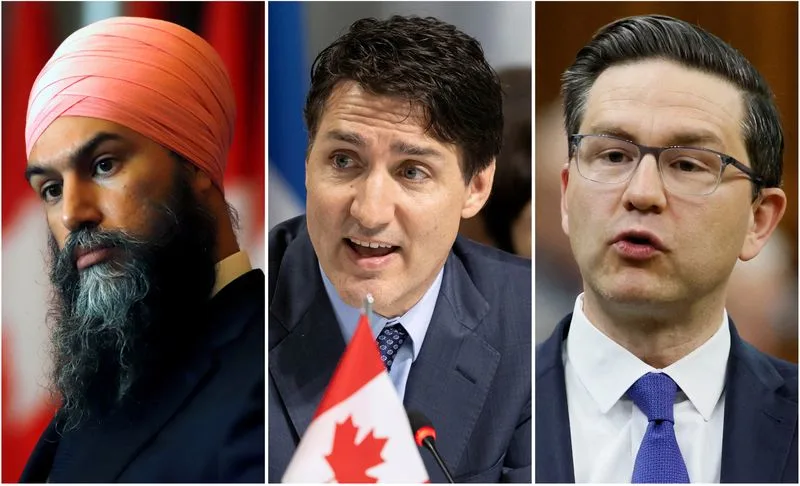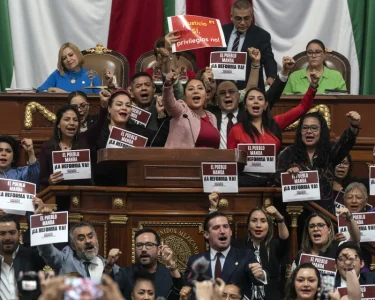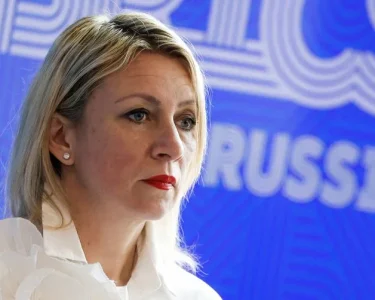Canadian PM Justin Trudeau has found himself in a precarious position after his key political ally, the New Democratic Party (NDP), signaled it will no longer provide automatic support for his Liberal government. This shift threatens to shake the political landscape of Canada, potentially leading to major changes in Trudeau’s leadership and the future of Canadian governance.

The NDP’s Critical Role in Trudeau’s Minority Government
In 2021, Trudeau’s Liberal Party failed to secure a majority in the federal election, leading him to rely heavily on the NDP, led by Jagmeet Singh, to pass key legislation. The NDP’s backing has allowed Trudeau to govern effectively, pushing through initiatives related to climate change, healthcare, and social justice, while avoiding a potential no-confidence vote that could trigger another election. However, recent developments have exposed cracks in this alliance, leaving Trudeau’s government vulnerable to parliamentary defeat.
The NDP’s withdrawal of automatic support, while not an outright end to their collaboration, signals a major shift. Singh and his party have emphasized that their future backing will be based on specific policies and outcomes rather than blind support for the Liberal government. This change could lead to increased challenges for Trudeau, particularly when it comes to passing contentious legislation.
Why the NDP Is Pulling Back
Jagmeet Singh has expressed growing dissatisfaction with the Liberal government’s handling of several key issues, including housing affordability, healthcare reform, and the cost of living crisis. NDP supporters have voiced frustrations over Trudeau’s inability to make substantial progress on these fronts, despite promises and incremental changes.
Singh, recognizing the growing discontent within his own party and voter base, has made it clear that the NDP is no longer willing to offer unconditional support. By pulling back, the NDP hopes to push the government towards stronger, more progressive actions on the issues that matter most to Canadians. Singh has emphasized that his party’s support will only continue if Trudeau addresses these concerns with more urgency and commitment.
Key Issues at Play: Housing, Healthcare, and the Economy
The Canadian housing crisis remains a central point of contention between the two parties. With housing prices skyrocketing in major cities like Toronto and Vancouver, many Canadians, particularly young families and low-income individuals, are struggling to find affordable homes. While the Liberals have introduced several measures to combat the crisis, including a ban on foreign home buyers and investments in affordable housing, the NDP believes these efforts have fallen short.
Similarly, healthcare is another area where the NDP has pushed for more aggressive action. Canada’s universal healthcare system has been under immense strain, with long wait times and a lack of resources plaguing the system. Singh has called for increased federal funding to improve healthcare access, especially in underserved communities, a demand the Trudeau government has been slow to fully meet.
On the economic front, the rising cost of living and inflation have become significant concerns for Canadians. The NDP has called for stronger government intervention to ease the financial burden on everyday citizens, including policies to address income inequality and corporate profiteering.
Potential Consequences for Trudeau’s Leadership
Without the NDP’s automatic support, Trudeau faces an uncertain future. His minority government is now more vulnerable to opposition forces, particularly the Conservative Party, which has been critical of the Liberals’ handling of key issues such as the economy, energy policy, and national security. If Trudeau is unable to secure enough votes for his policies in the House of Commons, his government could face a no-confidence motion, potentially leading to a snap election.
This shift in political dynamics could also open the door for renewed conversations about Trudeau’s leadership within his own party. While Trudeau remains popular among Liberal supporters, ongoing challenges like the housing crisis, healthcare concerns, and rising living costs have fueled criticism of his administration. Some political analysts have speculated that if Trudeau is unable to navigate this new reality effectively, it could lead to internal calls for a change in leadership.
Canada’s Political Future: What’s Next?
The withdrawal of automatic NDP support has left Canada’s political future in question. The Liberals will now need to secure backing on a case-by-case basis, possibly relying on smaller parties or individual members of parliament to pass critical legislation. This could result in more political bargaining and compromise, slowing down the legislative process.
In the meantime, opposition parties are likely to use this moment of vulnerability to strengthen their own positions. The Conservative Party, under new leadership, has been vocal about its desire to see a change in government, and this new dynamic presents them with a golden opportunity to challenge Trudeau’s leadership.
The Road Ahead: Can Trudeau Regain His Stronghold?
Despite the challenges, Trudeau is no stranger to political adversity. He has successfully navigated minority governments in the past and has a track record of bouncing back from tough situations. However, the growing dissatisfaction among voters, coupled with the NDP’s newfound stance, suggests that he will need to work harder than ever to retain his grip on power.
Trudeau’s ability to deliver on key promises such as affordable housing, improved healthcare, and economic relief will likely determine his government’s future. He will also need to rebuild trust with his political allies, particularly the NDP, and prove that his administration can still deliver the progressive policies that Canadians expect.
The coming months will be critical for Trudeau as he navigates this political tightrope. His leadership will be tested, and the future of his government will depend on his ability to address the concerns of both his allies and the Canadian public.
Final Thoughts
With the NDP stepping away from its automatic support, Prime Minister Justin Trudeau faces one of the most significant challenges of his political career. The question now is whether Trudeau can rise to the occasion, address the pressing issues facing Canadians, and rebuild the political alliances needed to sustain his government. Only time will tell how this new chapter in Canadian politics will unfold.
For more political insights and updates, check out our latest articles on Digital Digest.




